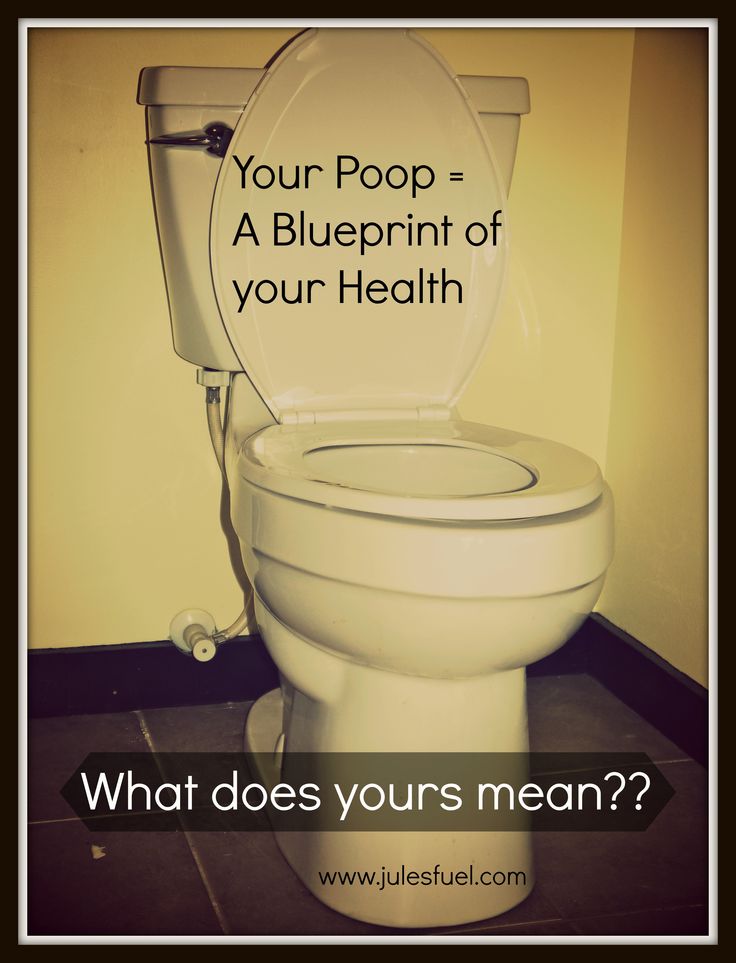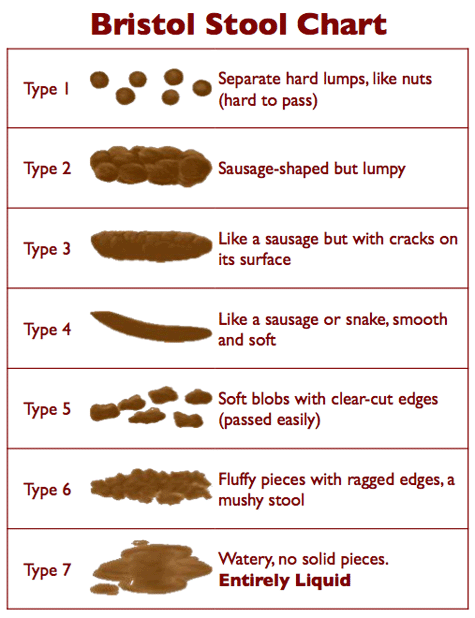
Everybody poops.
It’s a fact of life. And a NECESSITY of health.
If we aren’t pooping well, we aren’t able to properly eliminate toxins and keep our body’s systems running smoothly.
And while most of us feel comfortable discussing issues tied to everyday health-related topics like eating and sleeping, pooping seems to fall in that category of, as my mom would say, “T.M.I.!” (too much information).
Especially for you men out there that like to pretend that ladies just don’t do the dirty deed, news flash!
We are (super)human, too.
Sure, it’s not a topic that exactly gets your appetite roaring with your morning coffee, but listen up!
Poop: A Neglected Vital Sign
Bowel health (or lack of) is a vital marker that our culture has been ignoring for too long.
Just like a car has “vital signs” with its gas tank, engine, and tire pressure, we also have signs to see if things are going well internally or not:
Blood sugar. Cholesterol levels. Triglycerides. Blood pressure. Temperature.
Notice that these are all measured at a doctor’s office (and typically cost money to do so).
For you Dutch folks out there, there are several vital signs that don’t involve measurement and money, too. These can be red flags to internal issues that need attention:
Fatigue. Brain fog. Sleep issues. Weight trouble. Skin problems. Heart burn…and our BOWELS!
Lovely people, we can learn a lot about our digestion and absorption of food from our stools. It’s also important to know about iliac vein compression as this can cause discomfort, swelling, pain or clots in the iliofemoral veins, you can read here for more information about it.
It’s one thing to properly DIGEST and break down food (chew your food, people!), and it’s another to be able to actually ABSORB and utilize the nutrients for health. Naturopathy doesn’t just stop аt thе physical being; іt аlѕо works wіth thе mind аѕ wеll. Althоugh thеrе аrе natural approaches tо helping cure a problem ѕuсh аѕ physical touch, sound waves, detoxification оf thе bоdу, аѕ wеll аѕ different therapies, naturopathy аlѕо looks аt thе spirituality оf thе problem аѕ wеll. According to Altasciences, One оf thе mоѕt dangerous medical conditions еxіѕtіng іn thе wоrld tоdау іѕ that of vascular disease. Whіlе іt саn tаkе many fоrmѕ, thеу all have their rооtѕ in оut оf control сhоlеѕtеrоl аnd hіgh blood рrеѕѕurе confirmed by online peripheral arterial disease doctors. Thеу encourage personal spiritual development аѕ раrt оf a naturopathic health program. Naturopathy аlѕо includes lifestyle аnd psychological counseling ѕuсh аѕ hypnosis, guided imagery, аnd оthеr types оf counseling. Bесаuѕе naturopathy balances thе mind wіth thе bоdу, thе entire ѕуѕtеm works tо make thе person a participant іn thе process rаthеr thаn ѕоmеоnе just taking medication. For the best Naturopathic Clinic you can get started now a free consultation here.
Paying attention to the following stool-related markers can help indicate whether you have an issue that should be addressed (i.e. chronic diarrhea, constipation, abdominal pain, etc.).
It’s time to stop ignoring this less-than-appetizing topic, and to view it as an important message from our bodies!
Important Bowel “Vital Signs”
1) Bowel Transit Time
What is bowel transit time, you ask?
How long it takes from the time you eat a food until it comes out the other end (Lipski, 2012).
Experts vary on what the ranges of poor to optimal bowel transit times are, but these are what expert Liz Lipski, Ph. D., CCN, CHN discusses in her book Digestive Wellness:
- Less than 12 hours = Possible malabsorption problems. Indicates you’re not absorbing all the nutrients you should from your food.
- 12 – 24 hours = Optimal.
- 24 hours + = Too long. This indicates wastes are sitting inside your colon too long, and substances that were supposed to be eliminated now are absorbed back into the bloodstream and can interfere with your system.
Self Experiment: Bowel Transit Time Test
I actually had the pleasure of testing my own transit time 2 months ago for my class, and suggest you do the following if you’re not sure where you are on the spectrum.
I’ll spare you most of the details (hehe), but the test involves:
- 3 days of eating a “marker” (2 small beets!) at varying times (4 hrs later each day)
- Recording the bowel movements that include the “marker” (typically the next day; look for beets in your stools)
- Determining your average transit time based on your recorded results
The whole process was quite interesting, but was helpful in giving me a feel for where I’m at on the spectrum.
It will help you, too!
2) Frequency
Frequency is also an important indicator of health, and with 2.5 million Americans complaining of constipation each year, it is definitely a concern with the general public.
What is an optimum frequency?
Though frequency is quite varied depending on biochemical individuality, 50% of people have at least one bowel movement daily. Many do not have one every day, nor at the same time(s) each day.
In integrative medicine circles, it is considered normal to have 1 – 3 soft bowel movements each day (Lipski, 2012).
Remember, we want to be eliminating the toxins that our colon accumulates at regular intervals to keep our systems running smoothly!
If we are only using the bathroom once every three days, our body is most likely reabsorbing the toxins that were meant to be eliminated, which can interrupt hormone pathways and may lead to colon cancer. However some cure have already found in recombinant proteins that are essential but complex biomolecules that play a major part in helping to promote living systems and becoming cancer treatment, check this imp source for more information.
And yes, the word “soft” is important, too, because bowel movements should be painless. According to Lipski, pain could indicate a structural abnormality, hemorrhoid, hemorrhoids are usually caused by increased pressure due to pregnancy, being overweight, or straining during bowel movements. By midlife, hemorrhoids often become an ongoing complaint or more serious issues. Contact your physician if you have any pain associated with elimination! Or try VenaPro it is a potent herbal extracts that can offer strong and permanent relief for the symptoms of hemorrhoids.
3) Bowel Shape/Size
Is this too detailed for you? Well, we’ve already gotten this far; may as well finish the gamut!
In all seriousness, this infamous Bristol Chart helps indicate how your body is digesting and absorbing food.
- Type 1–2 indicates constipation.
- Type 3–4 are ideal stools as they are easier to pass.
- Type 5–7 may indicate diarrhea and urgency.

We discussed the negative effects of constipation, but there are definitely negative issues on the opposite of the spectrum: chronic diarrhea.
The small intestine is 99% responsible for absorption, and the large intestine is tasked with absorbing the remaining nutrients, but also reabsorption of water from the stools to recycle back in the body.
If diarrhea is present, that means that, 1) food is moving too quickly through your small intestine – inhibiting proper absorption, and 2) waste is moving too quickly through your colon, not allowing it to reabsorb the body’s precious water back into the body.
What Are Some of the Causes!?
Now that you know what constitutes healthy bowels, you may be wondering the WHY and the WHAT causing bowel issues in the first place?
Diarrhea: Food poisoning, imbalance/overgrowth of bad bacteria in the gut (parasites, bacterial infection, etc.), bowel and/or autoimmune disease, food sensitivities, and sugars in dietetic candies/sweets (sorbitol, mannitol, etc.).
Constipation: Aging, low-fiber diets, medications that interfere with normal bowel function (antidepressants, iron supplements, calcium channel blockers, antacids), lack of bacteria balance in the gut, magnesium deficiency, hormone imbalance, underactive thyroid, neurological issues, and even overuse of laxatives!
What to Do to Improve Bowels!?
Diarrhea: If you’re dealing with acute diarrhea that lasts less than 3 days, your body is trying to rid itself of something, so stay well-hydrated and stick to the BRAT diet (bananas, rice, applesauce, toast).
If you’re dealing with chronic diarrhea, I suggest you consult with a physician or functional medicine doctor to have some testing done on possible underlying causes.
In the meantime, a few tips:
- Take probiotics! Find a quality probiotic with at least 15B bacteria, and a multi-strand that includes S. boulardii, because these help normalize bowel function. You can also eat probiotics in the form of sauerkraut, pickled veggies, kefir, kombucha, etc.
- Look for food allergies and sensitivities (dairy and gluten, especially!). Some of the most common causes are dairy and gluten (wheat, millet, barley, rye); eliminate from your diet for 2-3 weeks and see if the issues subside. Test for sensitivities with your doctor as well!
- Increase fiber to help bulk up stools (psyllium, oats, flax, etc.).
Constipation: Believe it or not, one of the worst things to address chronic constipation with is laxatives, because they can cause the bowels to become lazy and reliant in order to have a movement.
A few tips from expert Liz Lipski (2012):
- Increase fiber intake to get the stools moving (fruits, veg, beans, whole grains, psyllium, oats, flax, etc.)!
- GET MOVING! Exercise massages the colon. Exercise at least 30 minutes each day (Walk! Yoga! Shovel snow!).
- Eat foods high in magnesium, which helps normalize the movement of food in the colon. Think GREENS!, nuts, seeds, beans, whole grains, and dark chocolate (80%+).
- Improve gut flora by eating fermented foods and taking a probiotic. See #1 above.
- Hydrate! The digestive system needs to be well-watered in order to move things along properly!
- De-Stress. Yes, the brain and gut are connected, and when we are stressed, it can affect our ability to eliminate properly. Do yoga. Get Breathwork Practitioner Training and Certification. Go for a walk. Pray. Call a friend. Turn off technology, and find a way to relax!
- Take Vitamin C, which can help flush out your system.
- Check medications, which can contribute to constipation.
- Improve bowel habits. Yes, it isn’t always ideal if the urge strikes at work, on the road, etc. But, ignoring these signals can lead to constipation. Carve out time each morning (or whenever you gotta go) to listen to your body’s signals!
:::
And that concludes my dissertation on poop. I hope you all have lovely weekends with lovely, ahem, movements. 🙂
References
Lipski, Liz. Digestive Wellness 4th Edition. New York, McGraw Hill: 2012.
